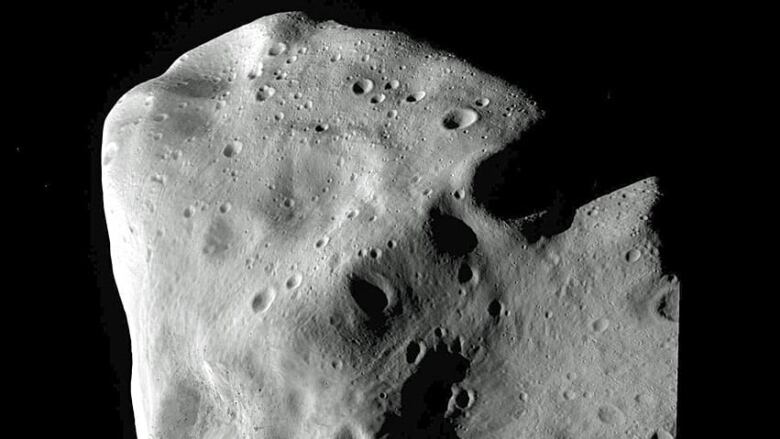U.S. space-mining law seen leading to possible treaty violations
1967 Outer Space Treaty prohibits any commercial exploitation of space, law professor says

U.S. President Barack Obama signed legislation on Wednesday providing a framework for space companies to mine ore from asteroids and other bodies, but legal critics are worried the measure could lead to violations of international law.
The Space Resource Exploration and Utilization Act gives any American who successfully extracts natural resources from outer space the property rights over thehaul.
- Space mining needs regulation, geologist says
- Asteroid mining mission aims to take riches from space
That could mean anything from waterfound in asteroids as blocks of iceto iron or platinum from near-Earth objects. And the profits could be huge.
But it has long been agreed between countries that outer space is not to become another Wild West, some legal scholars argue, and the new law risks privatizing a realm that is meant to belong to all of humanity.
"My view is that natural resources [in space] should not be allowed to be appropriated by anyone states, private companies, or international organizations," said Ram Jakhu, a professor at McGill University's institute of air and space law.
He said the 1967 Outer Space Treaty, signed by the U.S. and other countries, including Canada, makes it clear that the surfaces and contents of asteroids and other celestial bodies are protected from commercial harvesting.

The treaty's Article 2 reads, "Outer space, including the moon and other celestial bodies, is not subject to national appropriation by claim of sovereignty, by means of use or occupation, or by any other means."
That view isn't unanimous among legal scholars, however. Some say small asteroids don't qualify as "celestial bodies," while others say it's not "appropriating" an asteroid to extract minerals from it. And the new law does contain a clause making it clear the U.S. isn't asserting sovereignty or exclusive rights over any celestial body.
Ricky Lee, an Australian lawyer who wrote his doctoral thesis on the legalities ofspace mining, said companies are already making routine, for-profit use of limited space resources by launching satellites into low orbits, and especially intohigh-upgeostationary orbits, of which there area maximum number of slots available.
"So the idea that commercial use of space resources is prohibited by the Outer Space Treaty...is quite simply absurd," he said in an email.
But Jakhusaidthe overarching purpose of the treaty leads to the conclusion that"there really shouldn't be any private property rights in outer space."
Ethical iridium?
Already two U.S. West Coast companies Planetary Resources and Deep Space Industries are developing technology to identify asteroids suitable for mining.
The payoffs could be immense, with the raw value of the ores from an average-sized mineral-rich space object estimated to be worth hundreds of billions of dollars.
U.S. politicians supporting the new law see it as opening up a new andpotentially vast economic frontier.
"This bill is the future of space," Congressman Lamar Smith of Texas, a Republican, said during debate in the U.S. House of Representatives. "This bill will encourage the private sector to build rockets, to take risks and to shoot for the heavens [and] facilitates a pro-growth environment for the developing commercial space sector."
Supporters have gone so far as to say that mining certain key ores from asteroids will allow the U.S. to phase out reliance on the foreign andsometimes unfriendly countries it imports the same resources from now.
The bill's opponents in Congress are worried it's too much too soon.
Speaking in the U.S. House against the legislation, Representative Donna Edwards, a Maryland Democrat, said that while she shares in "the enthusiasm and the wonder of space," there is insufficient oversight right now to make sure companies don't run afoul of the U.S.'s international obligations. A space-law expert she cited from the University of Mississippi agreed that giving rights over asteroid resources would go against the global space treaty.
Ultimately, though, whether companies would put the U.S. in violation of international law by mining asteroids could be immaterial for practical purposes: There's no enforcement mechanism in the Outer Space Treaty, and even if there were, few countries would likely care enough about some cobalt taken from a comet to impose economic or other sanctions.
"In that situation, I don't think anybody can do anything about it," Jakhu said. "That is the world we live in might is right."












_(720p).jpg)


 OFFICIAL HD MUSIC VIDEO.jpg)
.jpg)



























































































